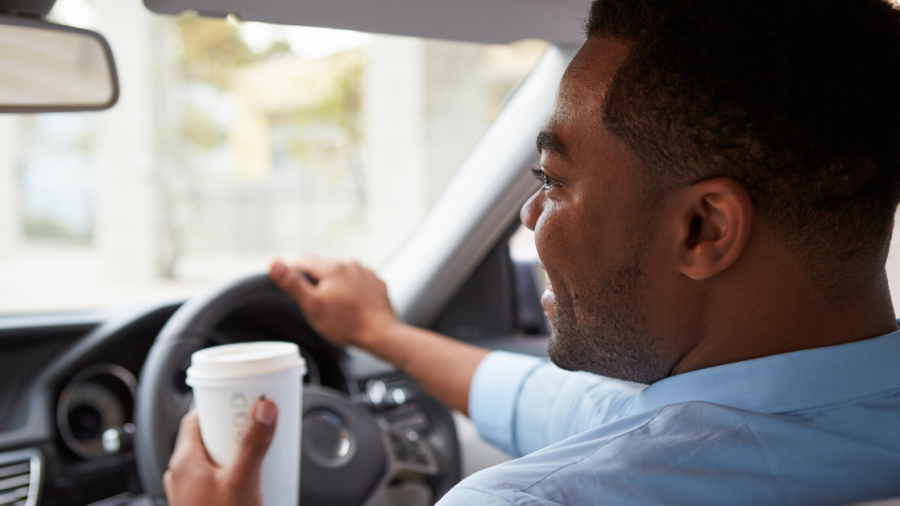Next time you get in the car and start driving, ask yourself what you are thinking about. It probably won’t be about driving. Yet 80% of crashes happen because drivers are not paying attention for up to 3 seconds. How come we don’t pay attention? A big part of that is because we feel safe.
Not thinking
Tom Vanderbilt, author of Traffic, says it is feeling safe that kills. Most crashes don’t happen on hairpin turns or narrow roads, but on wide roads on clear, sunny days to sober people. If this is true, then why do we base road safety on a narrow range of behaviours, poor roads, or unsafe vehicles?
An Australian study, commissioned by Transport for NSW but not published, offers an alternative picture of road safety. It concludes road safety is not a “top of mind” concern in our lives. This is because it has to compete with more pressing personal concerns, such as getting to work on time, being tired after a late night, or managing a relationship break-up. Road safety is very low on the list.
The study describes two types of thinking: Systems 1, which is automatic, and Systems 2, which is conscious.
- Systems 1 thinking includes emotional state, driver multi-tasking, your own versions of road rules and previous driving experience
- Systems 2 thinking starts in these cases, eg, unfamiliar roads, bad weather, seeing police, roadworks and bad driving by others.
Most of us are using Systems 1 thinking most of the time. The study wonders how we can encourage Systems 2 thinking when people get in their cars.
Driving is in-between time
In our blog, What we do behind the wheel half the time, we talked about unconscious competence. Most drivers have achieved sufficient competence that it has become unconscious. Therefore it is quite difficult to achieve conscious, or Systems 1 thinking, about driving.
Many people use driving as an in-between time, where they think about the past or where they are going. Very often they are alone, which could be a form of retreat or even a time when they feel in control. The driving task itself is not their focus and they feel safe.
Expert drivers are much better than less experienced drivers in selectively filtering important and unimportant information while driving. They may be aware of other people in cars or on the street, thousands of signs, general movement and colour, but they have learned to include some stimuli and shut others out.
Vanderbilt called this “awake at the wheel”. He said, “the safer cars get, the more risks drivers choose to take”.
Assisted driving makes it too easy
Driving the average, manual car used to demand 1,500 to 2,500 different skills. Today, new cars very often do much of the driving task. With assisted driving systems, drivers don’t have to be so vigilant nor so skilled in tricky manoeuvres, for example, reverse parking. Drivers can be lulled into a sense of safety – and slowly lose the skills they once had.
These semi-automated vehicles are supposed to make driving safer but there is a strong argument to suggest they have the opposite effect. We feel safe and stop thinking.
If the idea of Systems 1 and Systems 2 thinking is valid, then people need to be alerted to concentrate on driving. It would be better if these alerts did not come in negative form, such as a near-crash.
How to cut through?
How can road safety authorities encourage active conscious thinking while driving? On the face of it, it looks impossible. They would need to remove all assisted driving systems, all entertainment even radios, GPS, mobile phones, any kind of distraction. Just as we see driving as a right, many drivers would be unwilling to give up any of this.
One practical solution is to put in roundabouts. These more effectively alert drivers to the need to slow down or merge, than traffic lights, where all they have to do is watch the light.
Studies show people are disengaged from the idea of road trauma unless it actually happens to them. Perhaps each individual is thinking more about their own life than someone else’s. Meanwhile, media stories often describe crashes as ‘accidents’, which suggests the drivers had no responsibility for them anyway.
Ideas get much more traction when they have community support. Does the community actually support road safety measures? Perhaps road safety needs to be unlinked from specific behaviours (that incur heavy fines and demerit points) and looked at with a broader view.


your opinion matters: